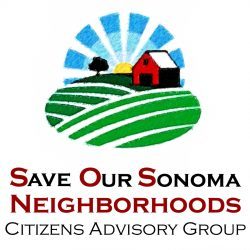Jordan Silva-Benham
May 16, 2021 at 4:30 a.m

(The Associated Press file)
The public hearing for Yolo County’s Cannabis Land Use Ordinance to be adopted is set for Tuesday, but residents are still concerned.
The hearing was originally set for the May 4 meeting but was moved to give staff time to resolve some issues, according to Chairman of the Board Jim Provenza. Despite the postponement, Provenza did give time for public comment on the matter during the original hearing.
Nancy Lea, former president and current executive committee member at the Yolo County Farm Bureau, noted the bureau’s opposition to the plan during the May 4 meeting.
“Cannabis is not a typical Yolo County ag crop. There is huge disparities in values. Cannabis is a no residue crop and its value is impacted by its neighboring normal farming practices,” Lea explained. “Traditional crop farmers can be threatened or sued by nearby outdoor cannabis operations. Insurance to protect traditional growers is either extremely expensive or impossible to purchase. And, cannabis characteristics can impact some neighboring crops. ”
Lea also explained that the recommended buffers — the distance between cannabis cultivation and properties — of 600 to 1,000 feet are not far enough. She noted that the South Davis Citizens Advisory Committee recommends a 10,000-foot buffer and that cannabis should be strictly grown indoors.
Residents of the Capay Valley are especially concerned due to possible increases in crime, the smell of cannabis, and a loss of tourism. Previously, the Cannabis Land Use Ordinance was put on hold after concerns from the Yocha Dehe Wintun Nation. The tribe had requested that cannabis operations in the area be redirected outside of the Capay Valley and offered to buy back land already being used for cultivation and to fund relocation of farms.
The Yocha Dehe Wintun Nation has been in talks with the county for a while now, raising concerns about overconcentration in the valley. The Capay Valley makes up only 8% of the landmass in Yolo County but holds about half the cannabis cultivation sites.
“Yocha Dehe Wintun Nation has tried to work with Yolo County to create reasonable cannabis policy since it was first authorized for medical use,” stated the tribe’s Public Information Officer Ben Deci. “But over time it has become clear that the process is skewed to favor of the cannabis industry, to the exclusion of our concerns about the very real harms that industry is inflicting on the Capay Valley, which quickly became overrun with cannabis grows when the county first authorized cannabis in 2016.”
Deci explained that the belief was that the cannabis cultivating licenses were temporary, but the county is now citing the rights of the business owners.
“We were told it was just an experiment. Well, the experiment has failed,” stated Yocha Dehe Chairman Anthony Roberts. “We are not opposed to the county’s right to authorize and tax cannabis; it just needs to be done right, and grown where it makes sense. And the reality is that cannabis cultivators are destroying the quality of life for people in the Capay Valley, a special agricultural area that the county’s own planning documents have identified as ‘worthy of special protection.’”
Deci’s statement also explains a belief that the county’s review process has been flawed by not giving residents options to ask for no cannabis cultivation in their communities, by not performing an environmental impact report before cannabis cultivation started in 2016 and by only preparing the report after cultivation had been established.
The idea of a flawed system was echoed by Helen H. McCloskey of Rumsey Farms in a letter she wrote to supervisors. McCloskey argues that the county did not follow the rules set forth by the California Environmental Quality Act, which requires governments to measure environmental impacts of policies and to minimize those impacts if possible.
McCloskey claimed that staff and consultants ignored the worries of Capay Valley residents.
Most of us voted to legalize cannabis. Little did we know our county’s implementation would harm so many and benefit so few, creating a policy of social and economic injustice that creates great wealth for a few at the expense of the community,” McCloskey wrote. “When anyone can grow cannabis, it’ll be farming. Growing cannabis isn’t ‘farming,’ it’s a grant of special privilege, available only to those with access to wealth, and largely abused.”
The staff report for the board did address the possibility of not allowing commercial cannabis cultivation in the county, however, they note that it is inconsistent with Prop. 64 — which legalized marijuana for adult use. Prop 64 passed in November of 2016 with 60.5% of voters in Yolo County approving it.
Staff also note that not allowing cannabis operations would be inconsistent with Measure K, which passed in June 2018 in Yolo County. Measure K allows the Yolo County government to impose taxes on cannabis businesses in unincorporated areas of the county.
“Cannabis is now a legal business,” one person said in favor of the Cannabis Land Use Ordinance during public comment on May 4. “Voters voted they wanted cannabis. A small group shouldn’t be allowed to put the restrictions they have after voting for legal cannabis on good people who are trying to run their business. This is wrong.”
Additionally, county staff have said that they have been holding meetings with the community as well as performing outreach with Citizen Advisory Committees, industry members, planning commission hearings, the Board of Supervisors workshops, and holding meetings with the Yocha Dehe Wintun Nation, city partners and the Yolo County Farm Bureau.
The Board of Supervisors are expected to finalize the Cannabis Land Use Ordinance during Tuesday’s meeting. The ordinance has been in the works since cannabis was first legalized in 2016.
